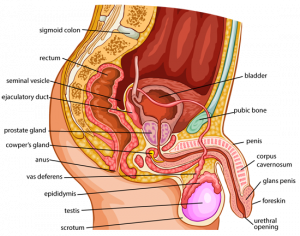Female Sexual Problems
Female sexual dysfunction is a common problem among females. Almost half of all females have persistent problems with sex, such as little or no sex drive, trouble reaching an orgasm, or pain during intercourse.
Satisfying sex involves your body, mind, health, beliefs, and your feelings toward your partner, among other factors. Here are some possible causes behind problems female sex life.
Medical or Physical Conditions for Female problems
Heart disease, diabetes, thyroid disease, nerve conditions such as multiple sclerosis, and even simple fatigue can make sex uncomfortable or painful. They can make it hard for you to get aroused or climax during sex.
Scarring from surgery or radiation treatment in your vaginal opening or in other parts of your genital area also can change your sexual experience. So can infections such as genital herpes.
Other possible causes include hormonal imbalance or physical changes related to:
- Pregnancy (you may have sex less often or find it uncomfortable, especially during the third trimester)
- Childbirth (your genitals may be less sensitive, you may have had a difficult delivery)
- Breastfeeding (low estrogen levels may lead to vaginal dryness, you may lack energy for sex)
- Menopause (vaginal dryness, lack of libido)
Mental and Emotional Issues
The right mood and a healthy, respectful connection with your partner play an important role in sexual intimacy. But there may be factors that leave you feeling self-conscious, fearful, or uninterested. Reasons may include:
Sexual dysfunction is a common problem among females. Almost half of all females have persistent problems with sex, such as little or no sex drive, trouble reaching an orgasm, or pain during intercourse.
Satisfying female sex involves your body, mind, health, beliefs, and your feelings toward your partner, among other factors. Here are some possible causes behind problems in your sex life.
Medical or Physical Conditions in females
Heart disease, diabetes, thyroid disease, nerve conditions such as multiple sclerosis, and even simple fatigue can make sex uncomfortable or painful for females. They can make it hard for you to get aroused or climax during sex.
Scarring from surgery or radiation treatment in vaginal opening of the females or in other parts of the female genital area also can change your sexual experience. So can infections such as genital herpes.
Other possible causes include female hormonal imbalance or physical changes related to:
- Pregnancy (you may have sex less often or find it uncomfortable, especially during the third trimester)
- Childbirth (your genitals may be less sensitive, you may have had a difficult delivery)
- Breastfeeding (low estrogen levels may lead to vaginal dryness, you may lack energy for sex)
- Menopause (vaginal dryness, lack of libido)
Mental and Emotional Issues in females
The right mood and a healthy, respectful connection with your partner play an important role in sexual intimacy. But there may be factors that leave you feeling self-conscious, fearful, or uninterested. Reasons may include:
- Depression
- Anxiety
- Stress
- Past sexual abuse
- Low self-esteem
Medications, Drugs, and Alcohol intake in females
Drinking can make orgasm longer to achieve or feel less intense. Tobacco smoking and long-term use of heroin and other illegal drugs also can lead to female sexual problems.
Some medications can make sex less pleasurable, dampen sex drive, or cause vaginal discomfort. Types of medications include:
- High blood pressure drugs
- Antidepressants
- Antipsychotic medications
- Epilepsy drugs
- Certain cancer drugs
- Medication for urinary tract infection
- Steroids
Treatments and Other Help
See one of our doctors right away if you suddenly have pain or unusual symptoms during sex, like a headache, or if you think you’ve been exposed to a sexually transmitted disease.
For other kinds of female sexual dysfunction, a range of therapies can help. Your doctor will ask about your symptoms, check your health, order blood screens or other tests, and rule out other possible causes.
Medical treatments may include:
- Drugs to raise low libido (desire for sex)
- Kegel exercises for females to strengthen pelvic muscles to help achieve better orgasm
- Anti-inflammatory drugs to take before intercourse to lower pain for females
Other advice to improve your intimate experience may include:
- More open communication between the female and her partner,
- Making time for sex by females
- Improving intimacy with your partner
- Healthy habits of the female, such as minimizing alcohol, getting exercise and eating a healthy diet
- Therapy or counseling to help you manage stress or anxiety, or work through feelings of fear or shame in regards to sex in females
- Vaginal lubricant for dryness or lessen pain during sex for females
- Vibrators and other tools to enhance arousal in females
- Techniques on how to reduce distractions and be more present during sex for females.
What Are Male Sexual Problems?
Problems with sexual functioning are common, affecting more than half of all couples at some time. Although sexual dysfunction rarely threatens physical health, it can take a heavy psychological toll, bringing on depression, anxiety, and debilitating feelings of inadequacy. Male sexual problems, particular erectile dysfunction, may suggest an increased risk of vascular disease.
The major categories of sexual dysfunction in men include:
- Erectile dysfunction: sometimes called impotence, it is the inability to have or maintain an erection sufficient for sexual functioning.
- Premature ejaculation: an inability to delay orgasm and ejaculation, such that it occurs very early in the course of sexual contact, leaving the other partner dissatisfied.
- Male orgasmic disorder: an inability to reach orgasm (climax) with a partner; or the inability to achieve orgasm without lengthy sexual contact; or the inability to have an orgasm during intercourse. In some cases, orgasm can be achieved only through masturbation or oral sex.
- Inhibited or hypoactive sexual desire: a disinterest in sexual contact or complete lack of sexual desire.
- Retrograde ejaculation: the semen, rather than emerging from the end of the penis, moves backward into the bladder during orgasm. This isn’t dangerous. It is often a side effect of taking certain medications.
- Priapism: a prolonged erection unaccompanied by sexual desire; this rare condition is painfil, potentially dangerous, and requires immediate medical attention.
If your sexual problem only occurs under a particular set of circumstances, or only with certain sexual partners, then your condition is considered to be “situational” rather than “generalized” (occurring regardless of the circumstances or partner).
Many of these sexual conditions will occur at some point during the course of a man’s life. In fact, some researchers only consider a diagnosis of sexual dysfunction if the problem occurs in 25% of all attempted sexual encounters.
Because the sexual response is so complex, involving multiple factors, there are many causes of sexual dysfunction including physical and psychological causes.
Common physical causes of sexual problems(which includes erectile dysfunction) include the following:
- Conditions or behaviors that increase the risk of vascular disease, such as smoking, high blood pressure, diabetes, high cholesterol, and obesity, or the medications to treat these and other disorders
- Diabetes, especially if you have type 2 diabetes
- Hypogonadism, in which the testicles do not produce enough testosterone
- Thyroid disorders(both hyperthyroidism and hypothyroidism)
- Adrenal lesions (Cushing’s syndrome)
- Noncancerous pituitary growths that increase levels of a hormone called prolactin
- Diseases that affect the nervous system, including strokes, spinal cord injuries, multiple sclerosis, long-standing diabetes, and Parkinson’s disease
- Damage to arteries or veins following pelvic surgery (such as prostate, colon, or bladder surgery) or after radiation treatment
- Conditions that affect the penis directly, such as Peyronie’s disease (penile curvature) or injury to the penis itself or to the arteries, veins, or nerves that supply the penis
- Cardiovascular (heart) disease
- Blockages in the blood flow to the penis (usually due to injury)
- Leaky veins
Premature ejaculation (PE) is usually not due to physical causes, although the problem is sometimes linked to a neurological disorder, prostate infections, or urethritis.
Possible psychological causes of sexual dysfunction include:
- Anxiety
- Guilty feelings about sex
- Sexual aversion disorder
- Learned behavior pattern of rapid ejaculation seen with frequent masturbation or infrequent sexual activity
Painful intercourse usually has physical causes such as these:
- An infection of the prostate, urethra, or testes, which can be initiated by sexually transmitted diseases, such as chlamydia and genital herpes
- An allergic reaction to spermicide or condoms
- Peyronie’s disease, fibrous plaques on the upper side of the penis that often produce a painful bend during erection
- Arthritis of the lower back
Lack of sexual desire may be due to any of these factors:
- Physical illness
- Hormonal abnormality (usually low testosterone levels)
- Medications that affect libido
- Alcohol or recreational drug abuse
- Psychological causes, including depression or relationship problems, which a therapist may help identify
Retrograde ejaculation may occur in men from these causes:
- Prostate or urethral surgery
- Medication that keeps the bladder neck open
- Diabetes (which can injure the nerves that normally close the bladder during ejaculation)
Can Medication Cause Sexual Problems?
Many medications have been implicated in sexual dysfunction, causing inhibited sexual desire and/or erectile dysfunction, such as:
- Drugs to treat high blood pressure
- Diuretics (including thiazides and spironolactone)
- Histamine blockers
- Antidepressant medications
- Common over-the-counter preparations (particularly antihistamines and decongestants)
- Antipsychotic medications
- Sedatives
- Medications used to treat anxiety
- Use of drugs, including alcohol, methadone and heroin, anabolic steroids, and tobacco
Psychological Factors in Sexual Problems
Psychological factors play an important role. You may find it difficult to enjoy a sexual relationship if:
- You are under a lot of stress
- Your relationship is troubled
- You have a history of traumatic sexual encounters (rape or incest)
- You were raised in a family with strict sexual taboos
- You’re afraid of getting your partner pregnant or of contracting a sexually-transmitted disease
- You have negative feelings (including guilt, anger, fear, low self-esteem, and anxiety)
- You are depressed
- You are severely fatigued
- You are pushing yourself to have sexual relations with someone you are not attracted to sexually
- Gender dysphoria issues.
Environmental Factors in Sexual Problems
You may find it difficult to enjoy sex if there is no safe, private place to relax and allow yourself to become sexual, or if fatigue due to an overly busy work and personal life robs you of the energy to participate sexually. Parents may find it difficult to find the time to be sexually intimate, given the demands/presence of their children.
Fear of contracting HIV (human immunodeficiency virus, which can lead to AIDS), the difficulties of striving for “safer sex,” and the psychological effects of discrimination are just a few of the factors that can cause anxieties for men.
Erectile dysfunction, or ED, is the most common sex problem that men report to their doctor. It affects as many as 30 million men.
ED is defined as trouble getting or keeping an erection that’s firm enough for sex.
Though it’s not rare for a man to have some problems with erections from time to time, ED that is progressive or happens routinely with sex is not normal, and it should be treated.
ED can happen:
- Most often when blood flow in the penis is limited or nerves are harmed
- With stress or emotional reasons
- As an early warning of a more serious illness, like: atherosclerosis (hardening or blocked arteries), heart disease, high blood pressure or high blood sugar from Diabetes
Finding the cause(s) of your ED will help treat the problem and help with your overall well-being. As a rule, what’s good for your heart health is good for your sex health.
How Erections Work
During sexual arousal, nerves release chemicals that increase blood flow into the penis. Blood flows into two erection chambers in the penis, made of spongy muscle tissue (the corpus cavernosum). The corpus cavernosum chambers are not hollow.
During erection, the spongy tissues relax and trap blood. The blood pressure in the chambers makes the penis firm, causing an erection. When a man has an orgasm, a second set of nerve signals reach the penis and cause the muscular tissues in the penis to contract and blood is released back into a man’s circulation and the erection comes down.
When you are not sexually aroused, the penis is soft and limp. Men may notice that the size of the penis varies with warmth, cold or worry; this is normal and reflects the balance of blood coming into and leaving the penis
Symptoms
With Erectile Dysfunction (ED), it is hard to get or keep an erection that is firm enough for sex. When ED becomes a routine and bothersome problem, your primary care provider or a Urologist can help.
ED may be a major warning sign of cardiovascular disease indicating blockages are building in a man’s vascular system. Some studies have shown men with ED are at significant risk of getting a heart attack, stroke or circulatory problems in the legs. ED also causes:
- Low self-esteem
- Depression
- Distress for the man and his partner
Causes
ED can result from health problems, emotional issues, or from both. Some known risk factors are:
- Being over age 50
- Having high blood sugar (Diabetes)
- Having high blood pressure
- Having cardiovascular disease
- Having high cholesterol
- Smoking
- Using drugs or drinking too much alcohol
- Being obese
- Lacking exercise
Even though ED becomes more common as men age, growing old is not always going to cause ED. Some men stay sexually functional into their 80s. ED can be an early sign of a more serious health problem. Finding and treating the reason for ED is a vital first step.
Physical Causes of ED
- There is not enough blood flows into the penis
Many health issues can reduce blood flow into the penis, such as hardened arteries, heart disease, high blood sugar (Diabetes) and smoking. - The penis cannot trap blood during an erection
If blood does not stay in the penis, a man cannot keep an erection. This issue can happen at any age. - Nerve signals from the brain or spinal cord do not reach the penis
Certain diseases, injury or surgery in the pelvic area can harm nerves to the penis. - Diabetes can cause small vessel disease or nerve damage to the penis
- Cancer treatments near the pelvis can affect the penis’ functionality
Surgery and or radiation for cancers in the lower abdomen or pelvis can cause ED. Treating prostate, colon-rectal or bladder cancer often leaves men with ED. - Drugs used to treat other health problems can negatively impact erections
Emotional Causes of ED
Normal sex needs the mind and body working together. Emotional or relationship problems can cause or worsen ED.
Some emotional issues that can cause ED are:
- Depression
- Anxiety
- Relationship conflicts
- Stress at home or work
- Stress from social, cultural or religious conflicts
- Worry about sex performance
- Finding the cause of your ED will help direct your treatment options.
- Diagnosing ED starts with your health care provider asking questions about your heart and vascular health and your erection problem. Your provider may also give you a physical exam, order lab tests or refer you to a Urologist.
Questions About ED
Knowing about your history of ED will help your health provider learn if your problems are because of your desire for sex, erection function, ejaculation, or orgasm (climax). Some of these questions may seem private or even embarrassing. However, be assured that your doctor is a professional and your honest answers will help find the cause and best treatment for you.
ED Treatments
Non-invasive treatments are often tried first. Most of the best-known treatments for ED work well and are safe. Still, it helps to ask your health care provider about side effects that could result from each option:
- Oral drugs or pills known as phosphodiesterase type-5 inhibitors are most often prescribed in the U.S. for ED (Viagra, Cialis, Levitra, Stendra)
- Testosterone Therapy (when low testosterone is detected in blood testing)
- Penile Injections (ICI, intracavernosal Alprostadil)
- Intraurethral medication (IU, Alprostadil)
- Vacuum Erection Devices
- Penile Implants
- Surgery to bypass penile artery damage for some younger men with a history of severe pelvic trauma. Penile vascular surgery is not recommended for older men with hardened arteries.





